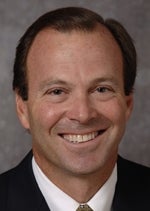On March 9, president Obama cited the commonwealth’s outstanding performance in an international test that proved our fourth- and eighth-grade students match up with the world’s best in math and science.
The well-earned distinction illustrated the president’s call for strong standards and accountability (such as our MCAS system), innovative schools (including charter and pilot schools) and professional development.
Charter Expansion
Challenging schools across the nation to improve, the president called on states to “lift caps on the number of allowable charter schools, wherever such caps are in place.” Having appointed Chicago’s top educator and charter school champion Arne Duncan as his Secretary of Education, the president is putting his money where his mouth is and is challenging members of his party who have largely opposed charters to get on board.
That should be good news for students and parents in Massachusetts. The state’s 1993 Education Reform Act launched a limited number of charter schools. Unfortunately, the state currently has three different caps that limit access to charter schools.
In contrast to the president’s call, high hopes for more rapid adoption of these well-researched models of transformation in Massachusetts have faded in the face of union resistance and political leadership. As a result, we risk losing the gains we’ve made and alienating parents who are looking for public school options outside traditional school districts.
The results of a definitive study on the benefits of charter schools conducted by the Boston Foundation this year are stunning. The estimated effect of a year spent in a Boston charter school is often quite similar to that of a year spent in one of the city’s elite exam schools. In a single year, academic gains are the equivalent of half the size of the achievement gap between minority and white students. Between fourth and eighth grade, the test scores of charter middle school students rose from slightly above Boston’s average to almost equal to the Brookline public schools.
The need for more charters in Worcester is evident from the long waiting lists for the two current charters. More than 1,300 children wait for open seats at Abby Kelley Foster and Seven Hills charter schools, which exceed the performance of all other city schools but the University park Campus School, which is open only to students in its neighborhood.
Expanding access to charters will take strong and sustained support from the Worcester business community. We would encourage local leadership in this effort, and are willing to provide support.
Innovative schools represent just one element in a list of improvements required to create a world-class education system in Massachusetts.
In the case of charter schools, however, the demand is there, the results are proven, but the current limit is unjustifiable. We cannot consider ourselves a world-class education system while slamming the door in the faces of thousands of parents and students who seek a proven standard of education.
Christopher R. Anderson is president of the Massachusetts High Technology Council and former chairman of the Massachusetts Board of Education. He can be reached at chris@mhtc.org.

